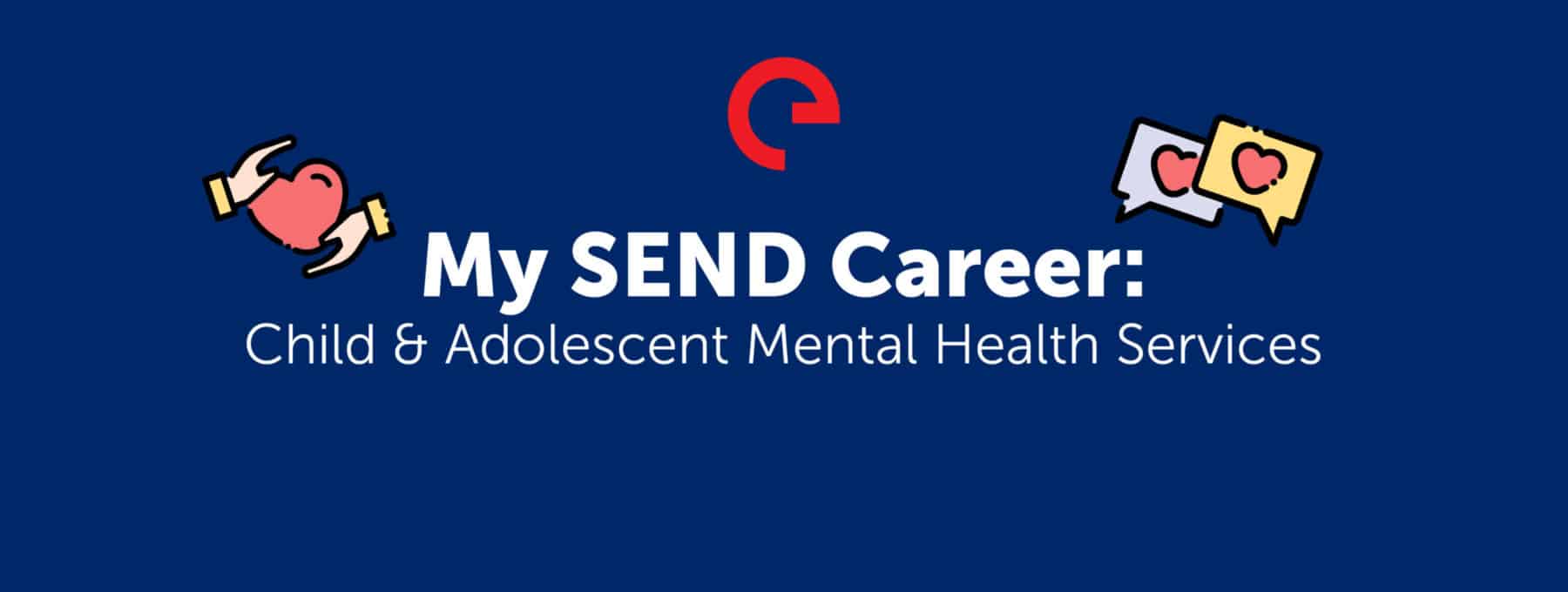
15th July 2019
My SEND Career: Child and Adolescent Mental Health Services (CAMHS)
CAMHS stands for Child and Adolescent Mental Health Services, which is a multidisciplinary approach to the mental health of young people, with teams made up of different kinds of professionals working in hospitals, in- and outpatient facilities, schools, and community centres.
People working within a CAMHS setting will work with and offer treatment for children suffering from difficulties stemming from:
- Depression
- Anxiety
- Developmental delay
- Phobias
- Aggression
- Gender dysphoria
- Consequences of child abuse
- Self-harming
- Learning difficulties
- Eating disorders
- Psychosomatic disorders
Within CAMHS, you may work as a therapist, counsellor, consultant, mental health nurse, child psychologist or psychiatrist. There are many avenues for specialism within the field, allowing you to work in a specific kind of therapy (such as art or play therapy) or with a specific illness (such as eating disorders).
If you have excellent communication, teamwork skills, patience and keen observation abilities, working in CAMHS might be the right career path for you.
How do I start working in CAMHS?
There are dozens of ways you can get involved in CAMHS across all skill levels and pay scales. A few of the ways you can support young people with mental health needs in your career are listed below.
Child Psychotherapist
Training to become a Child Psychotherapist is offered at institutions accredited by The Association of Child Psychotherapists (ACP). In order to undergo this training you will need to already have an honours degree and substantial experience of working with children and adolescents, whether in social care, health or education. Your training will consist of pre-clinical studies, observational psychoanalytic studies, and a four-year clinical training scheme.
Assistant Psychologist
Assistant psychologists undertake a variety of roles in supporting people with mental health problems. You could help with carrying out assessments, contributing to discussions about a client’s diagnosis or treatment, researching and gathering information, and working with a client’s carers or relatives.
To become an assistant psychologist, most posts will require you to have a degree in psychology, ideally one recognised by the British Psychological Society.
Mental Health Nurse
Mental Health Nurses support people with mental health issues by giving medication, assessing patients, encouraging patients to take part in therapies, and physical care where necessary. The patients could include those suffering with anxiety, depression, personality disorders, eating disorders, or addictions. It is the Mental Health Nurse’s job to build a good relationship with patients and their families where possible.
To work as a Mental Health Nurse, you will need to complete a degree in Nursing, approved by the Nursing and Midwifery Council, and pass occupational health and background checks.
Volunteer
If you’re not sure yet if working in CAMHS is for you, or you’d like to get an idea of how CAMHS are run, you can volunteer with your local service as a crisis helpline operator or providing support for parents. Take a look at the NSPCC or Youngminds volunteering opportunities to get started.
CAMHS in numbers:
- Anxiety disorders are estimated to affect 5-19% of all children and adolescents, and about 2-5% of children younger than 12.
- 59.1% of young people with a mental health disorder were bullied in the past year (41.5% were also cyberbullied).
- Over a third of 5-19 year olds with a disorder were recognised as having an additional special education need.
SEND Careers with Engage
If you would like a new role teaching in a SEND setting on a permanent, long-term, or short-term basis, full or part-time, our expert SEND team will be able to find the perfect role for you at one of our fantastic partner schools. You can register with the SEND team here.
SEND Careers with Engage
If you would like a new role teaching in a SEND setting on a permanent, long-term, or short-term basis, full or part-time, our expert SEND team will be able to find the perfect role for you at one of our fantastic partner schools.
Register with Engage!Recommended for you
Top 5 questions to ask at the end of a teacher interview
An interview for a teaching role can often be a daunting prospect...
- Your Career
- •
- 3 Min Read
Celebrating St. Patrick’s Day In The Classroom
Dia Duit! The 17th of March is St. Patrick's Day in the...
- Your Career
- •
- 3 Min Read
Ways to support your students during Ramadan
What is Ramadan? Ramadan, the ninth month of the Islamic calendar has...
- Your Career
- •
- 3 Min Read



